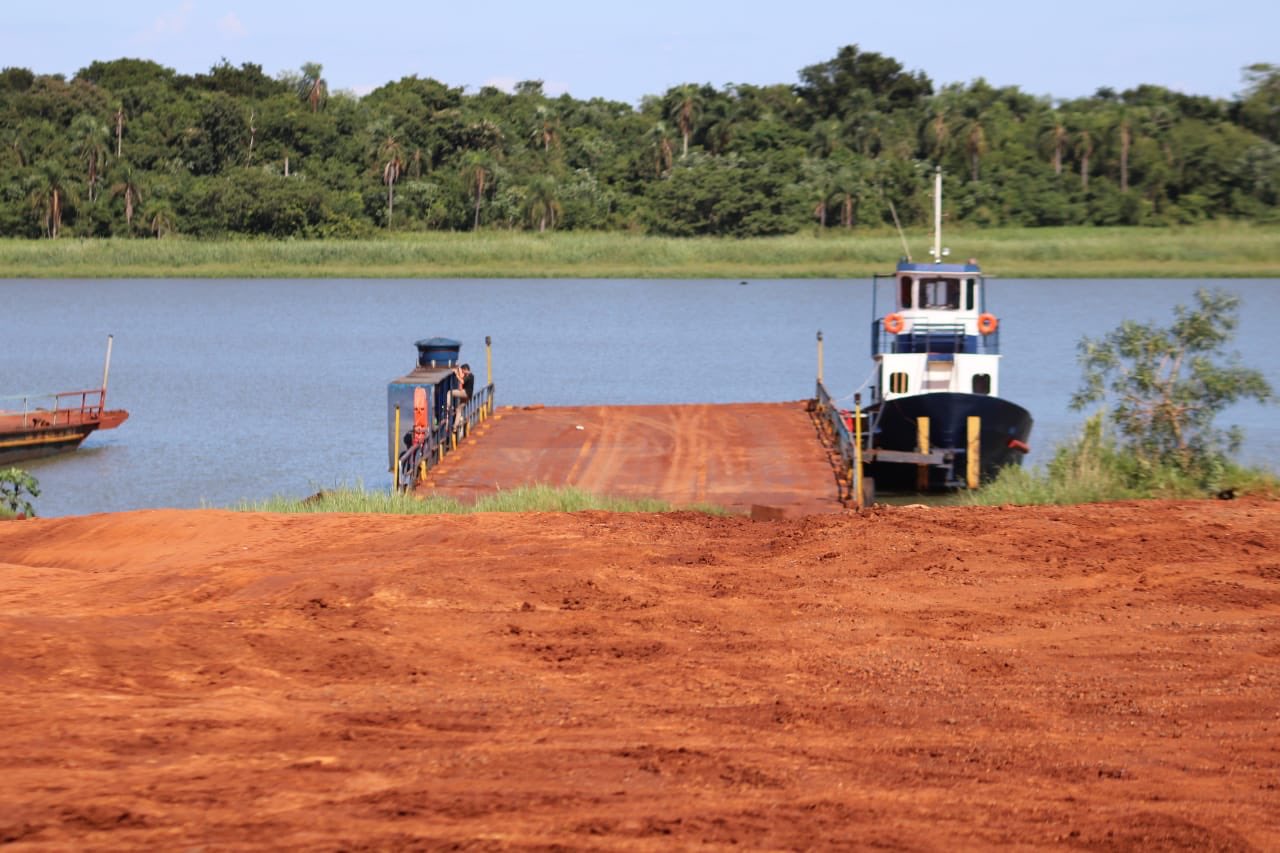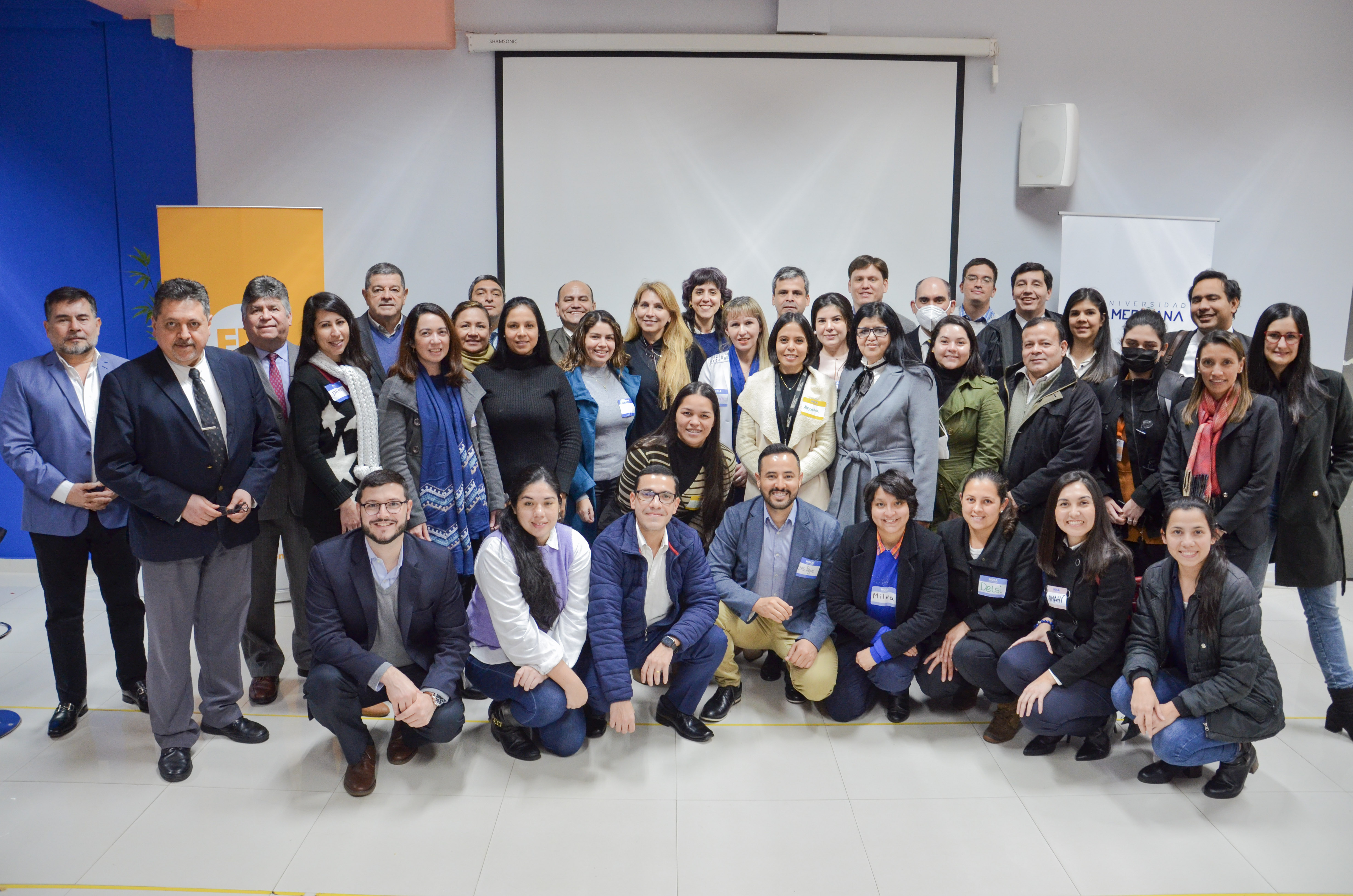A PILOT PROJECT FROM THE PUBLIC INNOVATORS PROGRAM
Innovating in Public Works: a land acquisition tracking system for the well-being of all
27 de Octubre de 2023
Read the Spanish version here

The route to Puerto Indio, a town in the department of Alto Paraná, is the first public work that will implement this innovation.
The Paraguayan Ministry of Public Works and Communications (MOPC, by its Spanish acronym.) has historically faced significant challenges in the land acquisition process necessary for the construction of public works. From identifying the affected areas to interacting with property owners and occupants to determine compensations, the lack of suitable technology has led to delays and even the suspension of projects.
However, the culture of innovation is changing this reality.
In recent years, the National Road Network has experienced significant growth, with the paving of 4,209 kilometers (about 2615.35 mi) of new roads and the construction of three large bridges. This progress has been accompanied by the incorporation of geospatial technology linked to the national cadastre, allowing for precise knowledge of the state of properties involved in the projects.
Through a process supported by the United Nations Development Programme (UNDP), the creation of the Real Estate Directorate and the development of the Expropriation Management System (SGE, by its Spanish acronym.) have been advanced. This system facilitates the comprehensive management of properties to be expropriated, providing citizens with real-time access to information on over 10,000 properties affected by approximately 30 ongoing public works projects. However, the initial implementation of the system faced challenges related to determining fair compensations, which must consider socioeconomic factors and require a thorough analysis of each affected household. Additionally, it did not have the capability to incorporate information about families occupying the territories, who are also subject to compensation.
The Public Innovators Program
In 2022, a team from MOPC participated in the Public Innovators Program, driven by the National Innovation Strategy (ENI) and the National Council for Science and Technology (CONACYT), in partnership with the UNDP Accelerator Lab. This initiative focuses on training public servants in policy and service innovation centered on people, with a teamwork approach. Each participating institution must form a team that participates throughout the entire process. The program consists of two stages: the first involves training by doing in workshops facilitated by specialists in public innovation, concluding with each team presenting a concrete proposal for an innovative initiative. The second stage involves the implementation of selected innovative initiatives. MOPC's proposal was to introduce a new component into the SGE: the Social Census Module, linking properties to be expropriated with information collected by social workers through censuses. This information is crucial for making informed decisions regarding compensations and relocations, considering factors such as family composition, gender, ages, educational levels, work conditions, disabilities, or illnesses. Incorporating a human-centered approach enriches the process, allowing for more appropriate compensations based on the real needs of affected households, as opposed to an evaluation primarily based on physical property dimensions.

The first edition of the Public Innovators Program had the participation of 55 employees from 13 public institutions, who developed 10 innovative solutions. One of them was the Social Census Module.
Development of the tool
For the pilot development, the MOPC team received $20,000 in support from IADB and UNDP, enabling them to access the necessary technology and technical support, including an R&D specialist with a focus on user experience (UX). Over two months, the team worked on the development of the Social Census Module, leading to the following lessons learned for similar initiatives:
Advantages
Leadership: The technical person responsible for the current system's development is also in charge of implementing the new module, providing fluency and knowledge in the implementation challenges.
Expertise: The development team consists of technical professionals specialized in web and mobile development. They also have previous experience in census systems used for family surveys.
Existing Base Tool: The SGE already exists, and MOPC's technicians use the system.
Challenges
Enhanced Communication: Establishing dialogue channels for co-creation with other parties involved in the module's development, particularly those related to user experience, is necessary.
Technological Updates: The SGE uses outdated software, requiring constant adjustments in the process of incorporating the new module.
Impact of the innovative tool
With the completion of the tool, there is still a journey ahead: the adoption by the Social and Environmental Management Directorate team, which coordinates the work of social and environmental specialists from the contractors involved in the projects. The first training process has already begun. The construction of the road leading to Puerto Indio in the Alto Paraná department is the first project to implement this innovation. So far, progress confirms that this tool not only streamlines the management of expropriations but also facilitates comprehensive and timely assistance to the families involved. It serves as an example of technological innovation in public works that not only benefits society but also ensures the rights of individuals and communities.

 Locations
Locations





